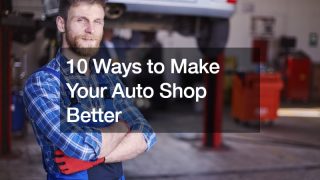
It is important to keep up with regular maintenance and repair work on any vehicle. It will ensure things work as they should and will keep the vehicle in good working order as well. If you are looking for a reliable Honda mechanic you will want to do a little research in your area before you make your choice.

A local mechanic should be someone who can offer a variety of services, such as brake and muffler repair, tire and engine checks, and any other system check or service you may need. Finding a car auto repair shop you trust is vital to keeping your vehicle in the best possible shape. When you know where to go ad trust your mechanics, you are more likely to get small issues to address before they spiral into larger and more risky and costly problems.
You can find a car automotive repair shop by asking for recommendations from people you know and trust. You can also check online for local options in your area that meet your needs. And don’t forget to look for a car body shop by searching for local business listings and directories.
Even the most cautious of drivers can get into car accidents. After all, accidents usually happen very quickly and without warning. When that happens, many folks often wonder, where do I start? What do I do?
If you’re wondering how you go about repairing a car after an accident, the first thing you should know is that you have options, some of which you may not even be aware of.
Understanding Who’s At Fault
If you’ve been in an accident, you want to know right away who’s going to repair your car and how much it’s going to cost. The answer to both questions really depends on where the accident occurs, specifically the state, how is at fault for the accident, and insurance among other issues.
Unless you live in a no-fault state, liability i.e. fault, in a car accident is always based on negligence. In a fault state, a driver must prove the other driver was negligent in order to get damages from an insurer or the driver. It’s important to note that in a fault-based state, an insurance company is only going to pay for damages up to the policy limits of the other driver.
What does that mean? It means if the other driver was at fault in an accident and caused $12,000 of damage to your car, but only has $6,000 worth of coverage, then the insurance company will only pay $6,000 toward your repairs.
In cases where you’re at fault for your vehicle’s damage, especially in cases where you might drive off the road, or run into a tree or fence, you have to pay for the damage yourself or make a claim against your own insurance policy’s coverage.
You Can Choose The Insurance Company
Repairing a car after an accident is a necessary undertaking if you want to get back on the road. If you get into an accident and you’re not at fault, then you can choose which insurance company you want to use to get your car repaired.
One option you have is to use your own insurance agency to get your car fixed. You’re already paying for insurance through that company and being provided with coverage, so in some ways, it’s a no-brainer. Plus, you more than likely have comprehensive coverage and collision coverage to deal with just this sort of thing. If you are paying for comprehensive coverage, then you may only have to pay $500 or $600 when all is said and done, depending on your deductible.

Going through your own insurance can also potentially help get your car back on the road faster. Since there are no questions about liability before a claim is paid. Once you pay your deductible, you should be all set, and just have to wait for the repairs to be done.
If you have to go through another insurance agency for any reason, the agency will need to first determine liability. If the other party is found to be at fault, it can make the claim process a little quicker. If determining fault is harder, however, then the agency may have to wait on the police report to determine liability. If the other part is found to be at fault, the agency will owe you money through tort, which essentially means one party owes a legal duty to another party.
You Can Choose The Shop
Depending on which insurance company you go through, some of them may have preferred auto body collision repair shops that they use. But for repairing a car after an accident, you definitely have more options than the two or three they are likely to provide.
You can always take those suggestions, but you aren’t obligated to. In some instances, it may be quick and easy to do this because those two or three shops are familiar with your insurance company and the way they conduct business. The good thing about this is that the shop is motivated to keep costs down to satisfy the insurance company. It’s a good bet the shop does quality work too, in order to keep work flowing in.
Should you opt to have your car repaired at another collision shop, your insurance company may tell you that auto repairs must be made for the same amount as one of their preferred shops or their adjuster bid. In some cases, insurance companies may require you to get bids from as many as three different shops. Once that’s done, the company then approves the median amount.
You Can Fix It (Or Not)
Believe it or not, repairing a car after an accident is a choice that’s entirely yours.

There are four main causes of auto body damage: fender benders, high-speed collisions, negligence, and weather. Depending on which of those categories your vehicle falls under, you may not need full-scale repairs. If your car is damaged, but not totaled, and still drivable, you can also take it to a shop to have it fixed yourself. Ultimately, it comes down to how you feel driving a car that perhaps looks a little banged up.
An insurance company owes you money for repairs, whether you get the car repaired or not. So if you prefer getting cash to getting a repair done, that’s your choice. The catch to that is if you do need to get a particular part of your car repaired in the future, the insurance company may not cover that.
Another option you have is to get estimates on repairs from auto body shops. Once you’ve got that information, you can then take your car to a mechanic friend, or someone who can do the work for less money.
You also want to consider that if you currently have a lender on your vehicle, then repairing a car after an accident is a good idea. This is a good idea so that you don’t run into problems if you try to sell the car at some point. Body damage can cause the value of a car to drop significantly and can cause car owners to go upside down on a loan, where they owe more on the loan than the car is actually worth. So if you’ve been in an accident and you need some extensive repairs done like hydraulic pump repair, to restore your power steering or automatic brakes, don’t hesitate to get that work done.
If you own your car free and clear, and you have minimal damage in the aftermath of an accident, you may choose to not even make an insurance claim. This is especially true for car-animal collisions. For example, if you have a car-deer accident where you hit a deer and you bust a headlight, you can buy parts from an auto parts store, and fix the headlight yourself.
You Can Choose Not To Keep Your Car
Repairing a car after an accident sometimes means knowing when to walk away. Even though your emotions may be running high in the days after an accident, you need to make sure you make decisions with a clear head.
In the event that your car is totaled in an accident, you can choose whether or not you want to keep your car. If a repair estimate comes back from a shop that’s higher than the value of your vehicle, it may be time to move on. In that case, the insurance company can pay you the value of your vehicle and you can go shopping for a new car.
You Can Say No To Their Offer
Just like you can choose not to keep your car after an accident, you can say no to the offer given to you by the insurance company for repairing a car after an accident. Just because they told you your car is worth a certain amount, doesn’t mean you have to say yes.

Plain and simple, if you think your car is worth more, you can say no to the offer. But you have to then prove that your car is worth more. How can you prove it? You can point out details like low mileage, upgrades you’ve made to your vehicle, a custom paint job you may have put on it, or even that your vehicle may be a limited edition. If you think any of those details can help increase the value of your car, you need to let the insurance company know right away.
Getting Legal Help
When anyone gets in a car accident, there’s a lot that happens. Firstly, there’s the shock of getting into an accident. Then you have to check that you’re alright as well as any other parties involved. Then you have to figure out what your next move is, both physically and also what to do with your car.
All of this can be very overwhelming and repairing a car after an accident may seem like a Herculean task. Thankfully, you can make the whole process a lot less stressful by meeting with a car accident attorney. If you’re filled with questions in the aftermath of an accident, an experienced attorney can help. They’ve seen and done a lot, and it’s a good bet they’ve seen dozens of cases just like yours.
A local car accident lawyer usually offers a free initial consultation, can answer all your questions, and really help you get some direction after you’ve been in an accident. Whether you’ve been seriously injured in an accident and want to take legal action, or you’re just looking for guidance on what to do with your vehicle, an experienced attorney can lay out all your options to help you make the best decision.
Getting New Keys And Fobs
Repairing a car after an accident can take a few steps, but in the midst of all the whole process, you may find yourself in need of a new car key or a new key fob.
In the past, if you needed a replacement key, it was easy to go to a locksmith or your dealership and get a replacement. But as easy as it was, it also allowed for more opportunities for thievery.
Today’s technology has allowed plenty of advancements to key a new key fob and keys made by laser cutting.
The cost of a new key fob can range from $50-$100, depending on the make and model of your car. All fobs need to be programmed and you might be able to have it done for free at your local dealership. If you’re in the market for a new fob, you can also buy aftermarket fobs online and program them yourself, much the same way you can program commercial garage door openers. If you need another option, you can buy one from a locksmith.
Keys made by laser cutting have a slightly thicker shank and fewer grooves. A benefit of these is that they have transponder chips, that can be programmed by a dealership or a locksmith. Depending on where you go, laser cut keys can range from $150 to $250.
Don’t Delay Repairs
Repairing a car after an accident may seem like an overwhelming task, but it doesn’t have to be. Armed with knowledge, and by having some patience, you can care of everything, step by step.

As jarring as being in an accident can be, it’s important to be diligent with getting your car repaired. If your car needs minor repairs, such as new headlights, or major repairs, such as brake services, make your insurance claim and get your vehicle into an auto body shop to have it fixed.
If your car has been totaled in an accident, do what you need to in order to get a fair price for your car. Armed with a payout, you can then shift your focus from the car accident to buying a new car, and getting back on the road soon. If driving is a big part of your everyday life—whether you’re traveling for work, running errands around town, or planning on taking a vacation—you need a vehicle and by being diligent you can find a great new vehicle and get back to traveling.



